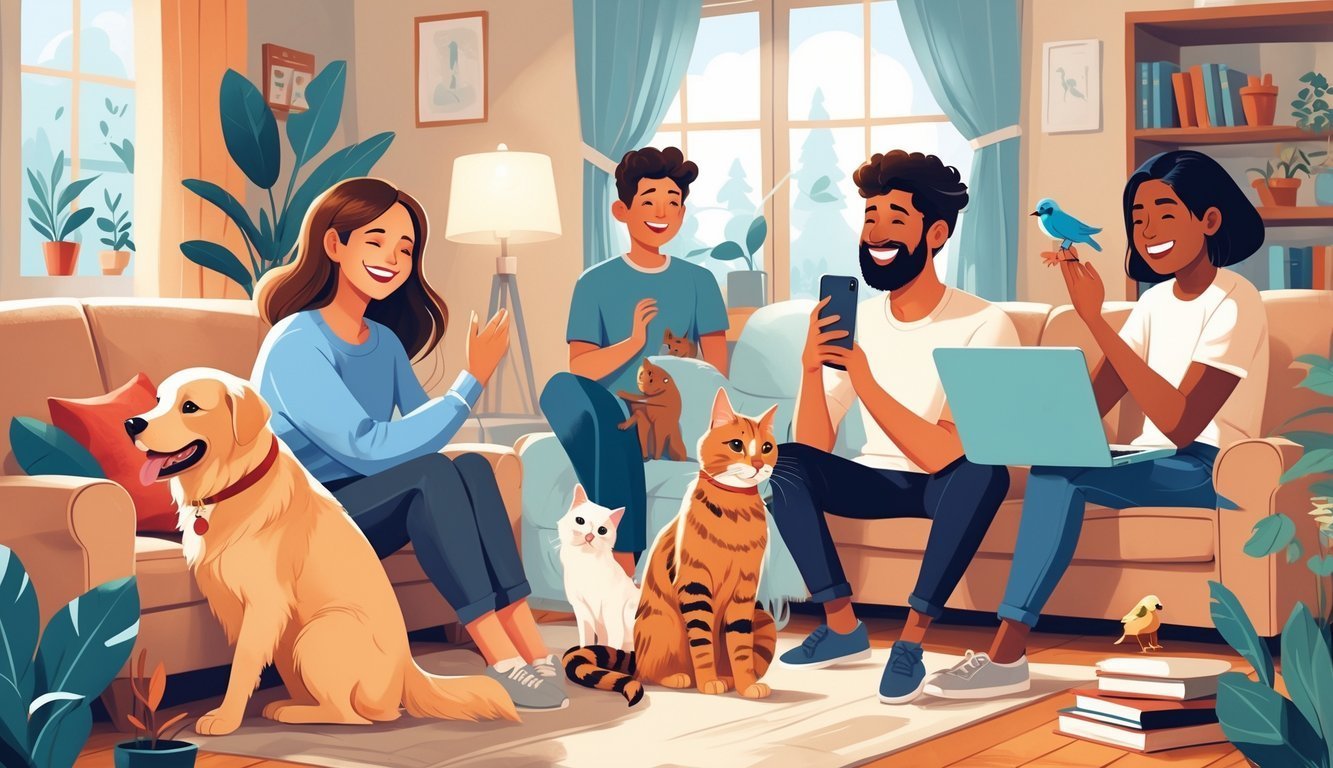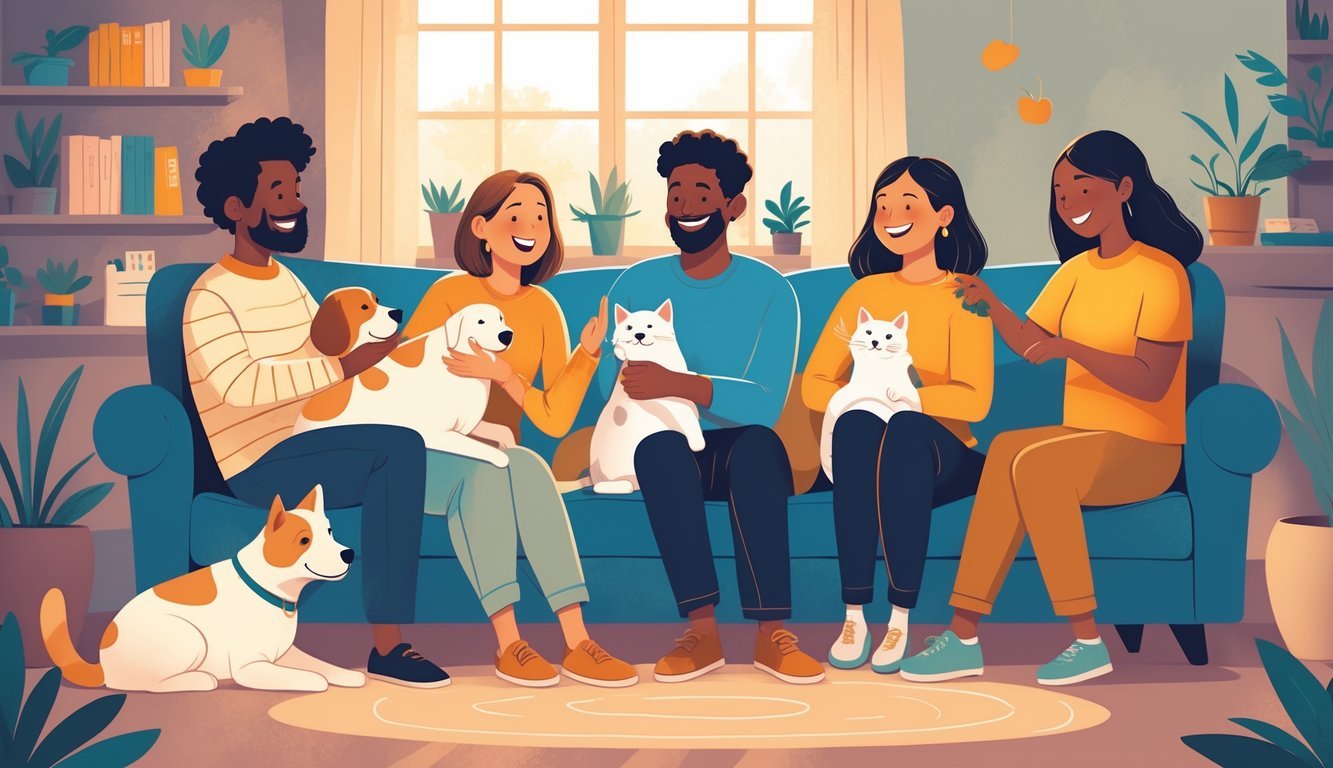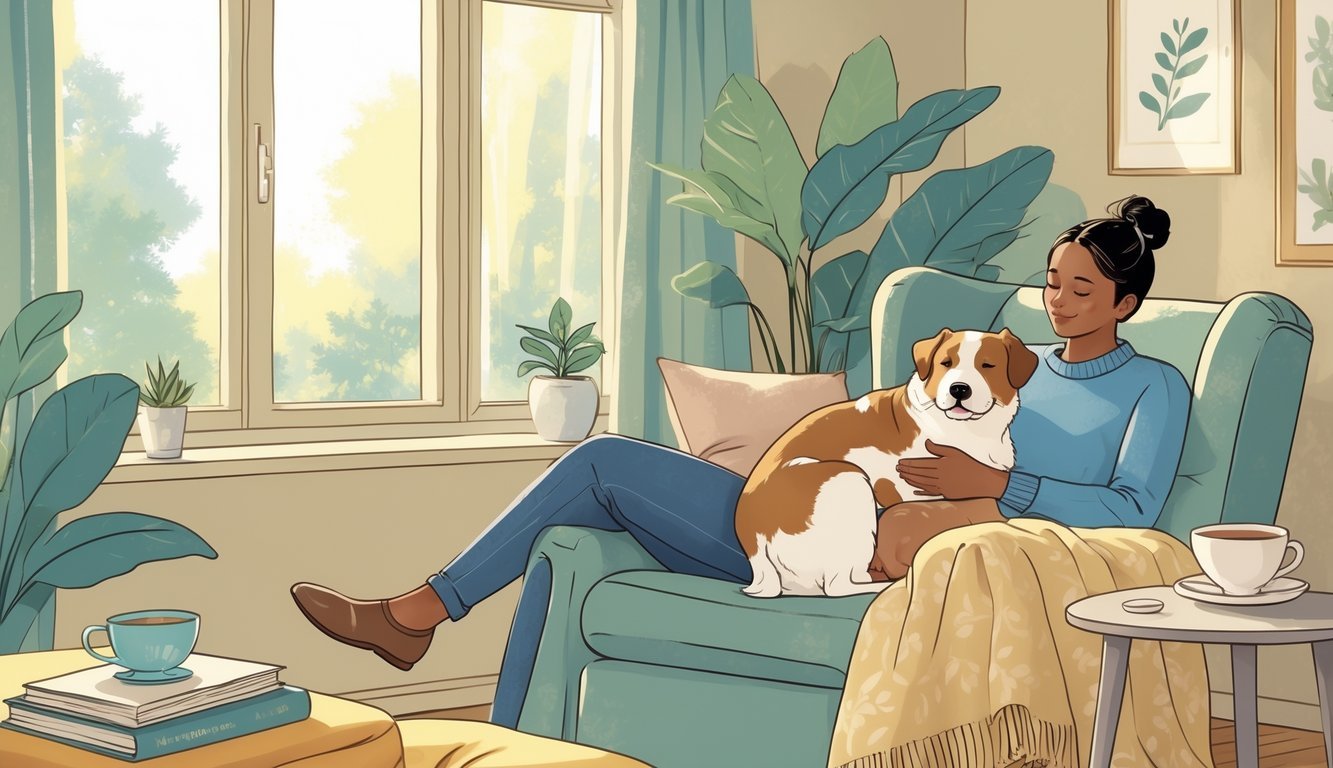PsychNewsDaily Publishers
100 Summit Drive
Burlington, MA, 01803
Telephone: (320) 349-2484
PsychNewsDaily Publishers
100 Summit Drive
Burlington, MA, 01803
Telephone: (320) 349-2484
Pets significantly reduced feelings of loneliness and improved mental health during lockdowns by providing companionship, emotional support, and a sense of purpose for their owners.

Lockdowns really took a toll on a lot of people. Many folks felt isolated and stressed. If you had a pet during that time, you probably noticed it made a difference. Pets brought comfort, helped ease loneliness, and honestly just made things a bit more bearable.
Pets gave people someone to care for and hang out with, especially on those long days at home. Studies found that having a pet often made people feel less lonely and improved their mood compared to those without pets.
So, if you have a pet or you’re thinking about getting one, it’s worth knowing how much they can support your mental health. That furry (or feathery) friend isn’t just a pet—they might be your emotional anchor when things get tough.

Lots of people felt less lonely and more supported with a pet around during lockdown. Dogs, cats, and even guinea pigs filled the gap when meeting up with friends wasn’t possible.
Animals brought stability and comfort, helping folks keep their mental health in check.
Companion animals can really calm you down. Spending time with your pet gets your body to release oxytocin, which lifts your mood and eases anxiety.
Many pet owners noticed their animals helped them deal with stress, especially when lockdown dragged on.
Taking care of a pet gives you a daily routine. Feeding, walking, or just playing with your pet adds structure, which can brighten your day.
That daily rhythm gives you a sense of purpose, especially when you can’t go out much.
The bond you share with your pet can make a big dent in loneliness. When you have a companion animal, you’re not really alone—even if you haven’t seen friends in a while.
A lot of pet owners felt their animals listened without judgment and gave comfort when things got rough.
Pets also sparked social interaction in small ways. Dog owners, for example, often bumped into neighbors on walks.
Even just talking to your pet can make you feel more connected. It’s funny how that works.
Different pets bring different perks. Dogs get you moving and outside, which is good for both mind and body.
Cat owners often say their cats helped them relax just by being nearby.
Guinea pigs and other small pets have a gentle way about them. Their calmness and need for care can be soothing, especially if you don’t want the responsibility of a big animal but still want a buddy.
| Pet Type | Key Benefits |
|---|---|
| Dogs | Outdoor exercise, active interaction |
| Cats | Calm presence, stress relief |
| Guinea Pigs | Gentle care, low maintenance comfort |
Kids definitely felt the benefits of pets during lockdown. Having a pet gave them someone to care for and talk to, which helped them handle stress.
Pets improved children’s emotional health and made up for not seeing their friends.
Pets also brought families closer. Taking care of an animal together meant shared activities and small moments of joy.
That teamwork created stronger family bonds, especially when everyone was stuck at home.

Pets can affect your mental health and loneliness in all sorts of ways. It really depends on your daily habits, how much support you get from your pet, and even challenges like getting to the vet or staying socially connected.
Surveys from the pandemic showed that a lot of people felt their pets helped with loneliness. One study found that pets acted as a buffer against psychological stress while people stayed home.
But not every study agrees. Some didn’t find a strong link between pet ownership and better mental health, though dog owners—especially those living alone—often reported less loneliness.
Most surveys still suggest that your pet can be a comfort when you’re feeling cut off from others.
Having a dog, or any active pet, might boost your motivation to get moving. Daily walks mean more physical activity, which helps your mood and cuts stress.
Exercise releases brain chemicals that fight depression and anxiety. Pets make it easier to stick with exercise because they need you to show up for them.
If you already like being active, a pet can help you keep it up—sometimes you need that little push.
Strong connections with pets often go hand in hand with less depression and anxiety. Spending time with your pet can distract you from worries.
Pets offer comfort and a reason to get up in the morning. That emotional support can make tough times, like a pandemic, a bit easier.
Of course, pets aren’t a substitute for professional help, but they’re a positive part of the mix when it comes to mental health.
Caring for a pet isn’t always easy, especially during a pandemic. Getting to the vet can be tricky and stressful.
And while pets help with loneliness, they can’t fully replace human friends. If you only lean on your pet for company, you might still feel isolated.
It’s important to balance your pet’s needs with keeping up your social life, even if it’s just a call or a chat online.

Pets can really change how you feel, especially when you’re alone or going through a rough patch. They offer comfort and help take the edge off loneliness.
Here are some common questions about how pets affect your mental health and what research says.
Dogs stick by your side and give you daily purpose. Their care routine keeps you busy and grounded.
They also get you outside, even if it’s just for a quick walk, which cuts down on isolation and can lift your spirits.
Researchers have looked at this a lot during lockdowns, but the results are mixed. Some studies found pets helped people with smaller social circles feel less lonely and stressed.
Other research didn’t spot big differences in mental health between pet owners and non-owners.
Sometimes, having a pet brings extra stress because of the added responsibilities and costs.
If you’re not ready for that, it might actually make you more anxious instead of helping.
Pets can be a real lifeline if you live by yourself. They offer steady company and help ease loneliness.
People with fewer social connections often benefit most from having a pet.
A lot of pet owners say they feel better mentally and less lonely thanks to their pets.
Surveys show that many believe their pets helped them cope during tough times.
Pets bring comfort and a sense of security. They help lower stress and can even lift your mood.
When you have a pet, you’ve got a reason to get up and stay active. Honestly, they make it a bit easier to keep a positive outlook, even when things get tough.